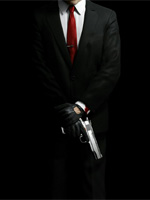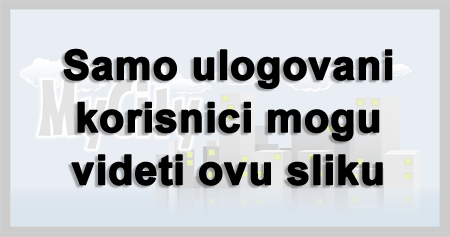offline

- Pridružio: 30 Dec 2011
- Poruke: 126
|
Juče je nesrećnim slučajem, padom sa motocikla, poginuo potpukovnik Anatolij Lebed, Heroj Ruske Federacije, koji je među mnogobrojnim odlikovanjima, predsjedničkim ukazom 2006. odlikovan i ovim ordenom za zasluge u borbama na Kavkazu.
Da vam ne dosađujem sa silnim informacijama o zaslugam i odlikovanjima , posto je ovaj čovjek učestvovao u svim ratovima od Avganistana preko Dagestana, Čečenije i Gruzije, više informacija možete pročitati na wiki linku [Link mogu videti samo ulogovani korisnici]
Ono što je možda najinteresantnije za nas, je da je ovaj čovjek učestvovao i u ratu '99. na Kosovu kao dobrovoljac, o cemu govori i sledeći intervju :
Unaprijed se izvinjavam sto je na engleskom, ako neko ne razumije nije ni bitno posto sam označio crvenom bojom gdje spominje da je bio na Kosovu kao dobrovoljac...
Interview with Lebed
Anatolij Leleb has already started fighting in 1980s in Afghanistan and continues to do so. Even after he lost his foot to the mine blast. "Maresjev was piloting a plane without his leg, and he is jumping in the mountains”, - soldiers from 45th VDV Regiment say about Lebed.
We’ve met with Anatolij Lebed in the square near the HQ of 45th Separate Guard Aleksandr Nevsky’s order’s Recon Regiment where he serves. The lunch time for the meeting wasn’t randomly picked – he dedicates this one hour long break between his training and jumps to a walk with his dog named “Pate” (“because he likes pate from MRE”), he took his dog from Chechnya. They came together to the interview.
— How did it happen that you’ve joined the VDV?
— We’ve already started jumping in DOSAAF. I’ve always been attracted to the sky. We together with my friend were trying to join Balashovskoe, then Borisoglebskoe schools, but didn’t pass the math test; I wanted to fly so badly. We came to VDV, to Gaiziunai division, passed six months there, then – airborne-assault brigade in Kazakhstan, 1.5 more years there, then – Lomonosov’s military air-technical school. Studied for three years and then to Zabaykalye, and from there to Afghan. ’86, June, and we all – all the graduates – were sent there. Then we were relocated to Berdsk. In ’94. There’s a military base, grass up to the waist, no room for the helicopters on the airfield. I’ve wrote a report and quit. I was already a pensioner because of the long service. No flat, no nothing. However they gave me the passport.
— And what did you do?
— I went to the war. The Balkans, Kosovo. They were bombing Belgrade when we arrived.
— You’ve quit the Army and went to war as a volunteer?
— Yes.
— Why?
— What do you mean why? One needed to help. Especially to the Orthodox people. Especially to the country, and not some persons or companies.
— It was your decisions or were you asked?
— No, it was ours. We do everything by ourselves.
— Who are “we”?
— Our military men, current or former, Russian officers. Or Airborne veterans.
— Probably many won’t understand you. No flat, family is living in the dormitory, and you didn’t try searching for a job, didn’t start your own business but went to a war for which you would not get anything.
— Yes, they wouldn’t give anything, also you had to make a foreign passport, get a visa, buy the tickets – all by yourself. But for the such reason I wasn’t thinking about money.
— You went to Dagestan later also as a volunteer?
— Yes. In ’99 Arabs went to Dagestan so I decided to go with my friend, with Igor Nesterenko. He is from Saratov. We were together in the Balkans. We thought that it’d take too long to sign up a contract when there, up in the mountains, **** was already being stirred, we were close to be late.
— So here you arrive as a usual citizen, a volunteer and then do what? They could have banned you from the combat area?
— When people are being bombed and shot at, then the Government forgets about bureaucracy. They gave you a visa – then it’s up to you. You can either go shopping or go to the war, it’s your choice.
— This was in the Balkans. What about Dagestan?
— In Dagestan it was even easier – there’s no border, you’ve arrived as a tourist – you can go sunbathing to Caspian or go to MVD. Do you need me? Yes. And then up to the mountains you go.
— So you went to MVD as soon you’ve arrived?
— Not necessarily to MVD, there are other structures as well. Let’s not go into details.
— Did you train someone or did you fight yourself?
— There was no time for training, we had to work.
— Did they give you some weapons?
— They did give us something. Then we either took trophies or bought. We didn’t have enough ammunition and gear. But if you want to be victorious, you have to be well prepared.
— You’ve said that you went to Kosovo to help the Orthodoxes, what about Dagestan?
— But it’s our country. Russia. And who’s the enemy? The same who was at the Balkans. One could constantly hear over the radio that it was our “friends” from our regions, Central Asia, Turkey. It’s the same contingent.
— After Dagestan you’ve officially returned to the Army – you wanted to continue fighting?
— The Army group moved from Dagestan to Chechnya, we had to sign the contract so that everything would be legal. We signed it in the Autumn of ’99 with 45th VDV regiment. And together with Igor Nesterenko went to Chechnya. He was killed in action at 1 December ’99 near Argun. It was a night ambush, meeting engagement. The combat started at 2 AM, he was wounded, and died at 3.30.
— Is he the only friend that you’ve lost?
— Not really. There were lots of them. I remember everyone. Our friends were killed in Georgia as well.
— After your friend has been killed you’ve also were ambushed and you lost a foot. Why did you return to the Army?
— I didn’t leave. For one and a half months I was lying in the hospital until they gave me an artificial foot and then I went to a “business trip”.
— You mean, right from the hospital’s bed, with an artificial limb?
— Well, yes. 25th of June 2003 I was wounded and got to the hospital, and in September already went to a “business trip.
— You were wounded in Chechnya and went back to Chechnya?
— Well, yes. I was wounded near Argun, it’s our work region, there’s no time to be bored there. And now there’s lot of work, I think. But if they say it’s peace, then peace it is.
— Do you believe it is peace there?
— We don’t need to believe. We have to be prepared for the worst. Politics for a military man are not necessary.
— But a lot of your colleagues aren’t satisfied by the modern-day politics in Chechnya.
— What do they say in TV? Everything’s OK there? Then it is OK. We will analyze when they will tell us that it is time for a “business trip”.
— You think they will?
— We will see.
— Do you have a family?
— I do. Here’s Pate. I brought him from Chechnya in 2004. He’s my combat friend. He flew on combat sorties, and was wounded. He was ill, we were fighting for his life for four times. I have a wife and a kid as well.
— Did they give you a flat?
— They did last year. Nearby, behind the HQ. They’ve built a house on base’s territory. Some of the flats were given to the military men from Moscow’s garrison, others were sold. Business.
— It seems that you don’t like business?
— “Business” is not our word.
— Then what is?
— Just work.
— So you’ve got your flat when you were 46 years old?
— Yes. It’s not that bad. However you can’t think about a flat or your family while on a mission. You won’t get a desired result. And you need to think about the result.
— You’re a real altruist. You don’t agree with people who leave the Army because they don’t have money and a place to live?
— Maybe they will find themselves later. It’s just that everyone has a dark period in his or her lives and the main battle is just ahead. Today he quit and 5 years later maybe he will have a normal job. Let them prepare themselves for this – morally, physically. You always have to be prepared.
— You’ve met Vladimir Putin when he gave you a Star of Hero and a year earlier with Dmitri Medvedev when you were being awarded for Georgia. What did you talk about?
— They’ve congratulated.
— You didn’t speak about the problems?
— Putin had asked: “Where do you live?”, I told “In the dormitory”. He told, “I see”.
— They gave you a flat after this?
— After this, four years later.
— Explain what is the difference between airborne’s task and usual soldier’s? You’re not jumping from the plane in the enemy rear, don’t you?
— We can do this also. Land where it is needed.
— What task did you have in South Ossetia?
— Prepare the first echelons, seek and eliminate their recon groups, and the main task – gather intel so that the main force could effectively fight and destroy the enemy.
— So you are in the first echelon?
— As far as I can remember myself, I was the head of first recon element. The VDV are something like first echelon of the army. And our regiment, Army recon, is the first echelon of the whole VDV.
— You had only one call-sign all these years?
— At the Balkans it was “Rus77”, then it transformed to just “Rus”, 77 is too long to ****ounce.
— Why “Rus”? Do you consider yourself a Russian patriot?
— Is this bad? We have to work. We don’t live long enough to be only spectators all life. Especially if you can help. And not only in “business trips”, but in civilian life as well.
— Today a lot of people are afraid to send their children to Army. Army has become a symbol of evil. What do you think about this?
— What should I think? A guy is studying in a school, then in University, then evades from the Army, runs like a hare, tries to find some papers [to evade the Army]. And does so until he’s 27. Someone from his friends went to a concert, like at Nord-Ost. Someone to school. Somewhere they’ve taken a concert, somewhere a school. And there one friend is killed, and the other is dead as well. Someone survived. And who was saving them? Military men. If we all had hid, did not let our sons go to the Army – what will happen?
— But there’s hazing in the Army, dudes are being killed for nothing.
— We have dudes being killed in their houses, in the restaurants, in the clubs and in school WCs. Our army is what? It’s the people. Army is the same as the people. And also West’s influence — lack of restraint, democracy and other fancy words. But they have their own specific details, and we our own. We are multi-cultural nation; we can’t use their methods. And more over, the weakness provokes the violence. Why there are a lot of attacks at women, pensioners, children? Because they are weak. There won’t be an answer. One has to know how to fight back at the level of the whole country and on a personal level as well. We have to prepare ourselves for the worst so that it wouldn’t happen. And if one is wearing pink glasses and then is being hit by a car when he crosses the road on a green light and the driver gets away. This is the faith of all those who are hiding. If somebody is being beaten on a street – doesn’t matter who – a girl, a boy or a bum – and you’ve passed and didn’t do anything – that’s all, you’re ****ed, the same will happen to you. If you can’t hit, at least call the police, that’s already something.
— When you are being given an order, are you always prepared to do it, not thinking, why such order was given?
— We are thinking how to do this with better result.
— Tell us about the war with Georgia.
— The other side had good equipment. We had everything standard; everything as usual, and they had the most modern equipment, weapons, vehicles, communication systems, AA missiles. They had a lot. Radio-electrical equipment was the most modern. In a word, they were defiantly properly prepared. They did not have luck with the instructors though. Maybe somebody tried to save money on instructors. If their instructors were interested, we would have a lot more problems than we did.
— What do you mean?
— Every country has their instructors or advisors. We have our officers. They had foreigners. It’s no secret that Ukrainians are good at radio-electronical equipment, they are also good missile specialists. If you want good tactics and diversions – that would be Turks. The fact is that Turks were working as instructors for Georgians, I can guarantee it. Because when we were working in Chechnya, there were a lot of times when we had mercenaries with Turkish passports and Georgian visas. It is quite possible that there were ours as well, from our regions. But it doesn’t matter to us which banner do they hold and what nation are they. If they are going against the state with weapons in their hands, then they have to be destroyed.
— But they didn’t go against our state? South Ossetia wasn’t recognized by Russia at that time…
— There was no status but we thought that they are ours.
— Why “ours”?
— Neigbours. Our neighbours. Our frontier. And they had asked for our help. Why not give a hand to a state that wants to be independent but someone doesn’t let them do it? If one stand and watches how his neighbour is being stabbed, then tomorrow he will have the same treatment. Just imagine that at first some suspicious guys move in to your neighbourhood and you kept silence, and then these people armed themselves, and you kept silence, you kept silence when they started to walk on the streets with knives in their hands, and when they started to kill your neigbours in the house next to yours, would you keep silence al well? No, you just couldn’t stay without any action. Because tomorrow they will come to your house with knives in their hands. It’s the same situation with South Ossetia, just on a bigger scale.
— How did you get to Georgia? From Abhazia or South Ossetia?
— After Saakashvili attacked Tskhinvali, we went from Abhazia to Zugdidi and Senaki.
— That means you weren’t in Tskhinvali itself and don’t know what happened there? They say that the balance shifted because of the Yamadaev’s men. What do you think, what made the outcome of the war?
— I don’t know about Yamadaev’s men. I’ve seen them only from the Abkhazian side. Probably they did help somehow. In Tsar’s army we had divisions from Caucasus as well, they solved their tasks fast and with no compromises.
And if we talk generally about the reasons for their losses, then one can state that Georgians were well prepared but preparation for the war not always can help in the real fight, one needs to know how to use it as well. I think their problem is that their leaders never had a fighting spirit and they just don’t know what is a war against the other nation. More so against Russia. They thought it would be easy. That they can freely kill our peacekeepers. That we would swallow it. Think again.
— You say that Georgian army had good weapons. It is well known that Russian army has not so good equipment. Are there any lessons that Russian army has made? In terms of rearmament, let’s say? There are even no UAVs in Russian army. And old small arms.
— For all those years that I serve, I’ve seen UAVs for two times. One was during the second Chechen war, one in Georgia. What is it, that UAV? It started its engine, buzzed, crashed into the column at the airfield and that’s all. So there’s no need to overrate them.
Our Army recon could work in mountainous and as well in desert conditions, and in the most difficult conditions of urban combat. We’ve shown what we are made of in the Balkans and in Chechnya. But the result of a war is made in close combat, just like it was years before. Air raids are one thing, artillery shelling is another. But the result still will be made by land warfare. And our weaponry almost doesn’t change. Yes, Georgians had M4 and M16 assault rifles. We had AKM and AKMS, Kalashnikov’s assault rifles. I fight with them from ’80, but they are by far the most successful rifle designs for close combat.
— You have mentioned good preparation of Georgian soldiers. Do you think they were preparing for this war?
— Of course, what doubts could there be, if they’ve burnt half of Tskhinvali after one night?
— But they say that there were Russian “grads” as well shooting at Tskhinvali.
— Now they can say anything. But who lost peacekeepers and civilians during the first night? They were killed in Tskhinvali. Georgian side didn’t have any casualties.
— There were people killed in Gori as well. Some houses were destroyed in the villages near the border, they were shelled.
— Of course they were, if their artillery is shooting at our troops when we are already on their territory – of course there will be some houses destroyed. Our forces had an order to go to Georgia – Georgia started an act of aggression against Ossetia. They were being pushed by someone from the side, in my opinion.
— And do you think it was the right decision to go deeper into Georgian territory and not stop by the South Ossetian-Georgian border, for example.
— At that time it was the best decision. How our prime minister who was a president before has said – preventive means are very important to fulfill a given task up to its logical end. If we start a slugging match, it would only make things more difficult. And we will loose a lot of men.
— But if we follow this logic, it would be only logical to go all the way to Tbilisi. So this means there was no logical ending.
— What is imported to us – is the order. If they say we should conduct an operation in that region, we do it. They said to fall back, so we did it.
— You said that one has to help his neighbours and that you’ve helped South Ossetia. But Georgia is also our neighbour. And now the relationships with this neighbour are spoiled forever.
— Yes, especially they are spoiled between them and Ossetians and Abkhazians. But what can one do? Everyone is independent now, everyone has their presidents. They are taking decision to send their army against peaceful people. If they hadn’t done it, everything would be different. If you talk long enough you will always make some consensus. But put a whole country in the crosshairs during few days – well excuse me, whose fault is this? When our tanks were by Tbilisi, I think civilian population made some conclusions about the mental health of that government. And everything because of their friends on the other side of the ocean. But I think that it is better to be friendly with your neighbours than to fight them and wait when someone will come to your home with a weapon in their hands.
— The Ossetians, neighbouring nation, had asked your help and so you’ve helped them. But what if Chechens had asked for help from Georgia or Turkey and they also would help – would that be correct as well?
— One has to know history at least starting from 1990. Look at Chechnya. The history is the same as their leader… There were lot’s of Arabs; who was helping them with weapons and money for their combat actions? Someone is giving them money for terror acts as well. I don’t think that a girl from a village who was working as a teacher suddenly went to the train and blown herself up together with other passengers. This means someone is leading them. There were Dudaev, Mashadov. What were they doing? They were almost separate from Russia. They could have lived peacefully without any war. But they have started to push their neighbours, Dagestan. And there are Ingushetia, Stavropol nearby, they’ve conducted some raids there. And that is already a threat to the territorial integrity of our state.
— You are one of those who are nicknamed as a “dog of war”. What war was the hardest?
— Every war is hard and has some details. But they all have something in common – one has to accomplish his task, inflict casualties to his enemy, and not provide happiness to his enemy.
— If you think about all your wars, is there anything you are ashamed of?
— It’s a shame that my friends have died. But no matter what, you know – we are not the first and not the last. You just need to make your job good. So that it would be bad to your enemy.
— Are you a religious man?
— I believe in work.
— You don’t go to church?
— No. I mean, I visit churches sometimes to have a look – it’s beautiful there.
— You are 47. How long are you planning to serve?
— Until they haven’t fired me. Such are times. I think my business trips aren’t over yet.
Mene sad zanima ako neko zna nešto više o ovom čovjeku, tačnije o njegovom učesću na ovim prostorima i ako je čuo "neke zanimljive priče o nekim rusima" koji su dosli pomoći srbima '99.?
Hvala unaprijed i hvala ovom čovjeku, heroju rusije, što je došao da nam pomogne kad nam je to najviše i trebalo.
Slava mu!
|





















